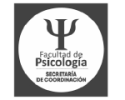
Abstract
Neuropsychological testing aims to measure individuals’ cognitive abilities (e.g. memory, attention), analysing their performance on specific behavioural tasks. Most neuropsychological tests are administered in the so-called ‘paper-and-pencil’ modality or via computerised protocols. The adequacy of these procedures has been recently questioned, with more specific concerns about their ecological validity, i.e. the relation between test scores observed in the laboratory setting and the actual everyday cognitive functioning. In developing more ecological tasks, researchers started to implement virtual reality (VR) technology as an administration technique focused on exposing individuals to simulated but realistic stimuli and environments, maintaining at the same time a controlled laboratory setting and collecting advanced measures of cognitive functioning. This systematic review aims to present how VR procedures for neuropsychological testing have been implemented in the last years. We initially explain the rationale for supporting VR as an advanced assessment tool, but we also discuss the challenges and risks that can limit the widespread implementation of this technology. Then, we systematised the large body of studies adopting VR for neuropsychological testing, describing the VR tools’ distribution amongst different cognitive functions through a PRISMA-guided systematic review. The systematic review highlighted that only very few instruments are ready for clinical use, reporting psychometric proprieties (e.g. validity) and providing normative data. Most of the tools still need to be standardised on large cohorts of participants, having published only limited data on small samples up to now. Finally, we discussed the possible future directions of the VR neuropsychological test development linked to technological advances.
«Despite a large number of papers, only three instruments are accompanied by studies reporting adequate psychometric proprieties (i.e. validity, reliability, sensitivity measures) and normative data, claiming to be ready for use in everyday clinical assessment: the Nesplora AULA (Iriarte et al., 2016) and the Aquarium (Climent et al., 2021), both assessing attention (see section Attention) and the Systemic Lisbon Battery
(Gamito, Morais, et al., 2016; Gamito, Oliveira, et al., 2016) assessing memory and attention (Table 1).
Notably, the Systemic Lisbon Battery reports a relatively small normative sample, and its clinical use may benefit from additional validation studies. The two Nesplora instruments, instead, provide data on adequate sample size for clinical use.«
AULA & AQUARIUM
«The immersive Nesplora AULA test (Iriarte et al., 2016) can be considered one of the most complete tests in VR. It is based on the Conners’ CPT paradigm, set in a virtual classroom environment that requires the participants to respond (1) when any letter except the letter ‘X’ or (2) when the letter ‘X’ appears on the blackboard. A complete psychometric approach has NEUROPSYCHOLOGICAL ASSESSMENT IN VR 9
17486653, 0, Downloaded from https://bpspsychub.onlinelibrary.wiley.com/doi/10.1111/jnp.12304 by Maynooth University Library, Wiley Online Library on [16/01/2023]. See the Terms and Conditions (https://onlinelibrary.wiley.com/terms-and-conditions) on Wiley Online Library for rules of use; OA articles are governed by the applicable Creative Commons License been used to validate the test, reporting evidence for its validity in the assessment of attention in children from 6 to 16 years old (Areces, Dockrell, et al., 2018; Areces, Rodríguez, et al., 2018; Díaz-Orueta et al., 2014; Zulueta et al., 2019).
The test disposes of reliable normative values obtained on large sample sizes for the administration in the Spanish population (Iriarte et al., 2016), which makes it one of the few VR-based tests ready to be used in everyday practice (at least in Spain).
Notably, the same group recently provided the normative values for another Nesplora test: the Aquarium, which can be used to assess attention in people older than 16 years old (Climent et al., 2021). This test too is based on CPT paradigms but it is performed in a virtual aquarium and the target/non-target stimuli are based on fishes’ names and appearances.»
Keywords: PRISMA; VR; cognitive assessment; neuropsychology; test; virtual reality.
Pieri L, Tosi G, Romano D. Virtual reality technology in neuropsychological testing: A systematic review. J Neuropsychol. 2023 Jan 9. doi: 10.1111/jnp.12304. Epub ahead of print. PMID: 36624041.
Full text: https://pubmed.ncbi.nlm.nih.gov/36624041/












Este proyecto ha recibido financiación de la Unión Europea del programa de investigación e innovación
Horizon 2020 bajo el acuerdo Nº 733901
© 2025 Nesplora S.L.